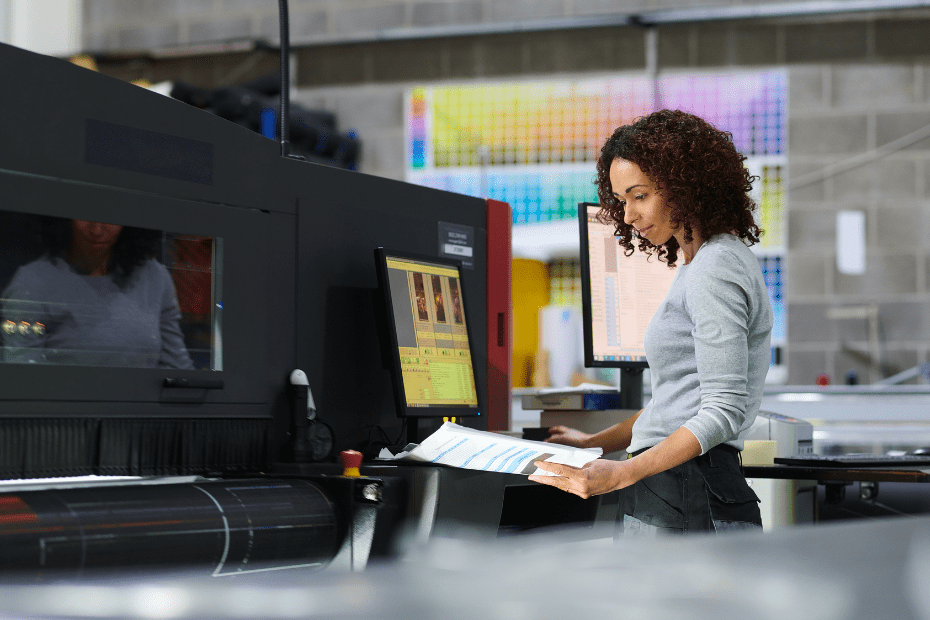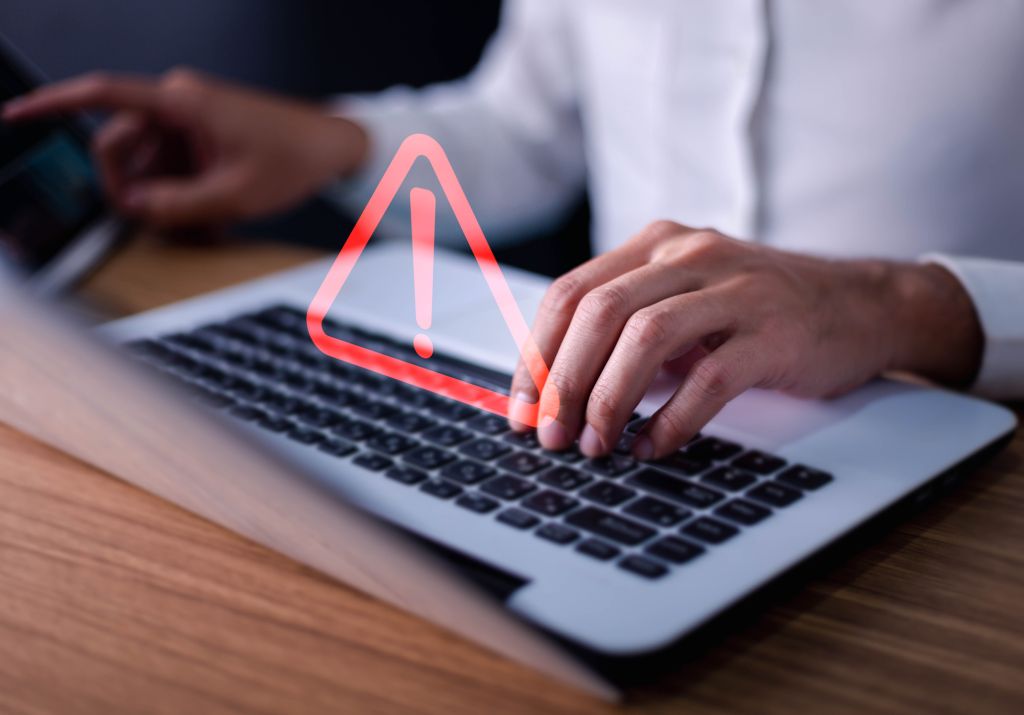Lease, Loan or Cash? 5 Things to Consider When Acquiring New Equipment for your Business

Published May 1, 2024 • 7 Min Read
If you need to acquire some equipment to help run or grow your business, you have the option to lease, finance or buy it outright with cash. But it’s not always clear which route to take. An industry expert shares five considerations to help guide your decision.
1. What is the nature of the equipment?
Whether you need industrial machinery for your shop floor or a multi-purpose photocopier for the office, equipment can be significant expense for your business.
The decision to lease the equipment, finance a purchase through a loan or pay cash often comes down to the equipment itself. As you evaluate your acquisition, ask yourself:
-
How long do I expect to use this equipment?
-
How long will it last?
-
Will the technology be obsolete in 4-5 years?
-
How quickly do I need it for my business?
-
Does the value this equipment provide align with its cost?
“In many instances, particularly in the office products industry, business owners don’t want to own the asset because the value isn’t there,” says Joe Suriano, Vice President, Vendor Financial Services, Canada at RCAP Leasing. “And more importantly, their needs within the business might change. If you buy a photocopier, for example, that photocopier might not fit your business needs in four to five years.”
The case can be made for leasing if you expect to want to trade in or replace the equipment in a few years – or you simply won’t need it down the road. Also, leases can generally be turned around very quickly, so are good options should you need to act fast.
“One thing I never recommend is to use your operating line to buy equipment,” adds Suriano, who has seen many owners, who need to acquire equipment quickly, use their operating line of credit to pay for it. “That operating line is there specifically as a working capital backup to help you grow your business. We can potentially turn a lease around in a matter of hours – so if speed is important, you have that option.”
2. How is your cash flow?
An important factor in your decision to lease or buy equipment is the amount of capital you have available – and how you need to use it to fund the operations of your business.
“If you spend $500,000 buying a CNC machine that manufactures your key product, and you install that on the floor in your machine shop, that piece of equipment is not immediately generating $500,000 worth of value for your business – but you’ve outlaid half a million dollars’ worth of capital,” explains Suriano by way of example. “That is capital you could be injecting into your business for growth.”
Tip: Before deciding to lease, compare the total leasing cost with the total cost of financing the purchase price by way of a loan. Remember to include the costs of any loan interest, insurance and taxes that you can expect to pay if you own the asset.
This is where leasing becomes attractive, in that you can pay for a piece of equipment over the period of time in which it is adding value for your business. The decision to lease or buy, Suriano explains, is “not about taking on too much debt or becoming overloaded in debt – it’s about being properly capitalized so that your assets are generating revenues and profits for your business over time.”
On the flip side, if your business is extremely cash-rich, it can be hard to justify the costs associated with financing. “If a business generates surplus cash,” says Suriano, “I would advise a client they should pay cash, so long as they can still achieve all their business growth goals.”
3. Consider the economic environment
While Suriano would recommend cash-rich businesses use cash to pay for equipment they want to own, external factors – such as the economy and interest rates – could affect this position.
“If we think about COVID, we were at historically low interest rates, to the point where it actually didn’t make sense for a cash rich business to pay cash. They could park their cash in a guaranteed investment and make more money than what we were charging them from an interest rate perspective – so a lot of businesses did that.”
In today’s environment, where interest rates are not at historic lows – and in fact play a leading role in many business decisions – owners should adapt accordingly. And, the type and rates available depend on the size of your business and the kind of asset you’re looking to acquire, in addition to your financial situation. Understanding the interest rate environment and the economic trends can help owners decide how they want to pay for their acquisition.
4. Tax implications
When it comes to choosing between a lease and a loan for your equipment, there are some tax and accounting implications to consider.
For instance, loan repayments are not tax deductible, however the interest paid can be deducted from your taxable income for the period during which you hold the loan. Lease payments, meanwhile, are fully tax deductible.
For accounting purposes, there are additional considerations depending on the type of lease you have. If depreciation and amortization schedules are important factors in your financing decision, it’s best to consult with an accountant to discuss the move that’s right for you.
5. Your business goals
Ultimately, Suriano advises that the decision to buy or lease equipment depends on the goals of your business. If you’re looking to grow or expand, for instance, money you may have earmarked for a capital purchase may be better used for other purposes.
“I have very different advice based on what an owner wants to do with their business,” says Suriano, noting that many business owners, when asked what their goals are, don’t have a clear answer. “Over my career, I have coached a lot of different owners to face that question, because it guides a lot of your decisions – not only financing equipment.”
At a Glance: Lease vs. Loan
| Pros | Cons | |
| Loan | • The company owns the asset from Day 1 • There is typically flexibility with respect to the loan contract. I.e., can repay early, negotiate a different interest rate or adjust amortization • May be easier to sell the asset earlier in the process should it not meet expectations | More money is required up front – taxes must be paid at the outset • Owner is responsible for maintenance and repair fees • A down payment is typically required, tying up cash • Loan could outlive the life of the asset |
| Lease | • Typically faster to secure • Lower monthly payment is easier on cash flow management • Usually no maintenance and repair fees • Provides the opportunity to put more money towards growth activities • Taxes are not paid upfront • Easy to replace or trade in if the equipment has a short life expectancy or regular updates • No down payment required | • Lack of flexibility in the contract – paying it off early or making lump sum payments not typically an option • Not all suppliers provide a lease option (or allow leasing companies to deal directly with them) • Once set up, rates are typically fixed • The equipment Is not the property of the purchaser until they have repaid the lease in full |
| Cash | • No interest costs | • Must pay entire amount upfront, losing the opportunity to use these funds towards other growth areas |
Make the best decision for your business
How you will fund a new piece (or fleet) of equipment may change depending on the stage, financial health, and objectives of your business – which will undoubtedly evolve over time. Suriano advises owners to keep up a regular dialogue with their advisor so they know what your needs are and can help you be proactive with an acquisition. “When your advisor understands the broader scope of your business, they can help you make informed decisions about your purchase.”
It’s also important to keep your business plan up to date so you have a firm handle on all areas of your business, and can make decisions that best address your needs of today and tomorrow.
Work out the different cost of buying vs leasing new equipment
This article is intended as general information only and is not to be relied upon as constituting legal, financial or other professional advice. A professional advisor should be consulted regarding your specific situation. Information presented is believed to be factual and up-to-date but we do not guarantee its accuracy and it should not be regarded as a complete analysis of the subjects discussed. All expressions of opinion reflect the judgment of the authors as of the date of publication and are subject to change. No endorsement of any third parties or their advice, opinions, information, products or services is expressly given or implied by Royal Bank of Canada or any of its affiliates.
Share This Article





